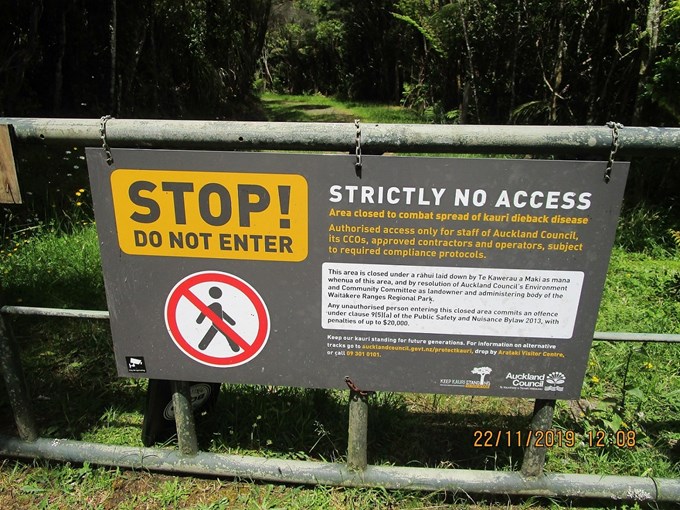Auckland Council has filed its first charges for breaches of the Public Safety and Nuisance Bylaw relating to the entry of closed tracks in the Waitākere Ranges Regional Park.
The three charges, filed in Waitākere District Court, relate to a member of the public entering a closed track, not once but three times over the last five months.
The first call is scheduled for 6 January 2020 with each charge subject to a fine of up to $20,000.
In May 2018, Auckland Council took the unprecedented step of closing high-risk tracks in the Waitākere Ranges Regional Park to the public to protect forested areas from the further spread of kauri dieback disease.
The closure means persons entering those tracks could be subject to prosecution under the Public Safety and Nuisance Bylaw.
“While most Aucklanders understand the need for temporary track closures to help stop the spread of dieback, those individuals who flout the rules with no regard for the damage they cause need to be held to account," says Mayor Phil Goff.
"This prosecution reflects the seriousness of the issue and sends a clear message to anyone breaching closed tracks areas that we will take enforcement action.
“The survival of our most iconic native tree is at risk and the decisions to close the tracks are based on hard evidence about what is necessary to slow and reverse the spread of kauri dieback disease.”

Since stepping up compliance efforts six months ago, 49 trespass notices have been issued.
“For the most part, visitors to the ranges play by the rules,” says Steve Pearce, Auckland Council’s Manager Regulatory Compliance.
“We have compliance officers working around the region to increase the level of education about the disease and compliant behaviour. Most Aucklanders have heard the message; they keep off closed tracks and use the cleaning stations so it’s disappointing a few continue to believe the rules are not for them.”
Compliance officers will have an increased presence over the Christmas and New Year period in the Waitākere and Hunua Ranges and in local parks where tracks have been closed.
Ambassadors will be out in force, working the same areas, educating visitors on kauri dieback.
So this summer, don’t get caught somewhere you shouldn’t be; it could prove costly.


